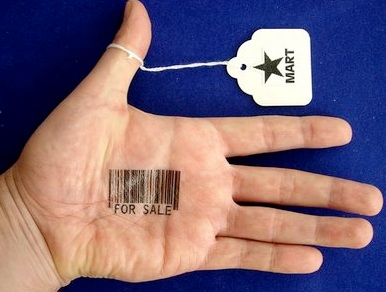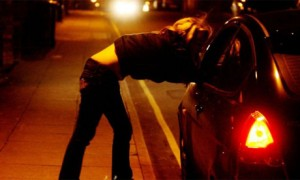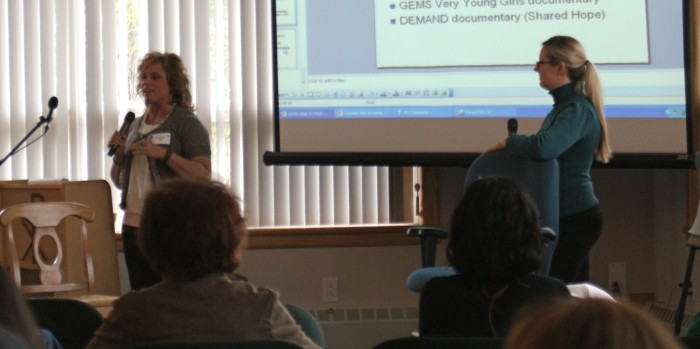The words “human trafficking” often conjure images of dark, grungy alleys in countries such as India and Thailand. Though awareness is growing, the 100,000-300,000children that officials estimate are forced into prostitution each year are often not regarded as trafficking victims, though legally defined as such by the federal Trafficking Victims Protection Act (TVPA), because the laws in some states fail to specifically criminalize domestic minor sex trafficking.
That is why Shared Hope International launched the Protected Innocence Initiative. The Protected Innocence Initiative is the first proactive study to effectively combat domestic minor sex trafficking by analyzing and grading six areas of law within every state’s legal framework. The first area of analysis under the Protected Innocence Legislative Framework is criminalization of domestic minor sex trafficking. Under this component, we are analyzing and grading every state’s law on it ability to specifically criminalize domestic minor sex trafficking and define minors used in commercial sexual exploitation or prostitution as human trafficking victims. Click here to learn more about this component.
One young girl, Kelly, spoke out about her sex trafficking experience in Virginia saying, “I carried around guilt that I thought I was a prostitute. I thought that I had made the decision. I didn’t really understand that someone had taken advantage of me and manipulated me.” Kelly was forced into the sex industry by a pimp after she ran away from home. However, despite being trafficked at a young age and finally seeking help, Kelly’s pimp could not be charged with sex trafficking of a minor because the state does not currently have any law directly criminalizing domestic minor sex trafficking.
 Stories like Kelly’s have become all too common in today’s society. Through the Protected Innocence Initiative, Shared Hope International seeks to help victims like Kelly by making sure the laws properly criminalize domestic minor sex trafficking.
Stories like Kelly’s have become all too common in today’s society. Through the Protected Innocence Initiative, Shared Hope International seeks to help victims like Kelly by making sure the laws properly criminalize domestic minor sex trafficking.
In order to truly make a difference, American’s must realize that sex trafficking is not some far off phenomenon, but a reality within our own borders. Sex trafficking happens within every state and every city. To combat this, each state must work to strengthen or create legislation to criminalize domestic minor sex trafficking. It is only through these efforts that one day America will escape the horrors of modern day slavery and be able and call itself “The Land of the Free.”
 Johns reported that they purchased sex because they were guaranteed submissiveness on the part of the prostituted woman or child. The distinct power imbalance and lack of relationship obligation was noted as a driving factor for those who purchase sex. Many of the johns reported having girlfriends or wives, and say they purchase sex to do the “dirty” sex acts that they would not do with their significant others because these acts could cause her to lose her self esteem. Though sex buyers recognize these distinctions, many commented that the sense of entitlement and degradation towards woman that develops from purchasing sex taints other relationships and their general attitude towards women.
Johns reported that they purchased sex because they were guaranteed submissiveness on the part of the prostituted woman or child. The distinct power imbalance and lack of relationship obligation was noted as a driving factor for those who purchase sex. Many of the johns reported having girlfriends or wives, and say they purchase sex to do the “dirty” sex acts that they would not do with their significant others because these acts could cause her to lose her self esteem. Though sex buyers recognize these distinctions, many commented that the sense of entitlement and degradation towards woman that develops from purchasing sex taints other relationships and their general attitude towards women. However, how can attitudes truly be converted when services created to protect DMST victims carry names that are inherently accusatory? For example, in South Florida, the FBI task force, which responds to DMST victims, is called “Minor Vice Task Force.” Vice is an umbrella term for crimes involving actions considered by their very nature immoral. Thus, this title implies that the focus of this task force is minors engaging in “immoral” crimes, crimes they are forced to commit as trafficking victims. Other examples include the National Innocence Lost Task Force, which although represents a step in the right direction of viewing the trafficked minor as a victim, may be interpreted by those who are served by that force as having lost all their innocence, and still fails to maintain neutrality despite well meaning efforts. Although prostitution is legally a crime, the San Francisco Task Force on Prostitution and Vallejo Prostitution Task Force titles reinforce the idea that prostitutes are the real criminals, which perpetuates victim blaming, rather than revealing that purchasing young girls for sex as the true crime. It seems odd that the names of some human trafficking task forces would focus on the victim of the crime, considering that many other task forces, such as drug task forces, maintain a sense of neutrality about the purpose of the task force.
However, how can attitudes truly be converted when services created to protect DMST victims carry names that are inherently accusatory? For example, in South Florida, the FBI task force, which responds to DMST victims, is called “Minor Vice Task Force.” Vice is an umbrella term for crimes involving actions considered by their very nature immoral. Thus, this title implies that the focus of this task force is minors engaging in “immoral” crimes, crimes they are forced to commit as trafficking victims. Other examples include the National Innocence Lost Task Force, which although represents a step in the right direction of viewing the trafficked minor as a victim, may be interpreted by those who are served by that force as having lost all their innocence, and still fails to maintain neutrality despite well meaning efforts. Although prostitution is legally a crime, the San Francisco Task Force on Prostitution and Vallejo Prostitution Task Force titles reinforce the idea that prostitutes are the real criminals, which perpetuates victim blaming, rather than revealing that purchasing young girls for sex as the true crime. It seems odd that the names of some human trafficking task forces would focus on the victim of the crime, considering that many other task forces, such as drug task forces, maintain a sense of neutrality about the purpose of the task force. Shared Hope was joined by District Attorney John Adams, Representative David Maloney, Detective Lee Wiley from the Montgomery Police Department, Julie Janovsky from Polaris Project, and survivor Jennifer Spry. Detective Wiley shared local stories, techniques and information on DMST, while Ms. Janovsky focused on law and policy. The testimony given by Ms. Spry was so powerful that it wrapped up with a standing ovation!
Shared Hope was joined by District Attorney John Adams, Representative David Maloney, Detective Lee Wiley from the Montgomery Police Department, Julie Janovsky from Polaris Project, and survivor Jennifer Spry. Detective Wiley shared local stories, techniques and information on DMST, while Ms. Janovsky focused on law and policy. The testimony given by Ms. Spry was so powerful that it wrapped up with a standing ovation!





